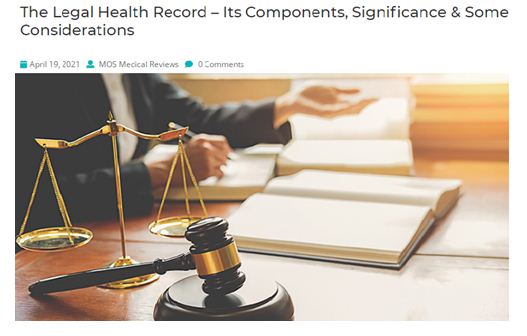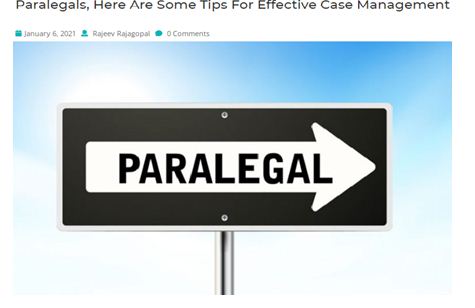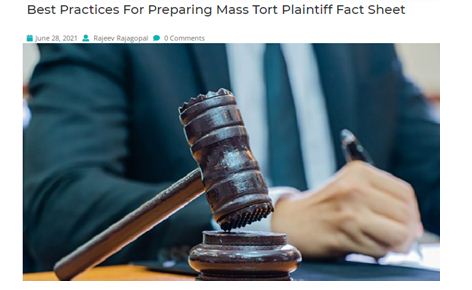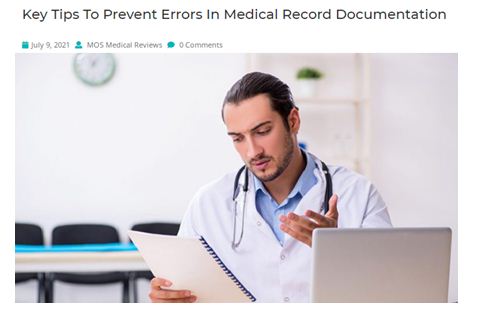Reviewing medical records is essential for attorneys to understand the details of a case and determine its strengths and weaknesses. Insurers also need accurate medical records review for claim handling purposed. Our medical record review company serves the medico-legal industry across all 50 states in the U.S. Our team shares their expertise in our blog. Our 2021 blog posts covered diverse topics such as deposition summaries, plaintiff fact sheet preparation, medical records analysis, rebuttals, and narrative medical summaries.
Here are our top 10 blog posts for 2021.
- The Legal Health Record – Its Components, Significance & Some Considerations
The legal health record refers to the health information of a patient documented by a healthcare organization. This record is required for peer reviews and medical claims review. It is generally used when replying to formal medical record requests for legal purposes. This blog discusses the significance of the legal health record and its components.
- Social Security COLA Updates For 2022
Along with ensuring payment of due benefits to eligible applicants, the SSA also makes regular cost-of-living adjustments or COLA to counteract the effects of inflation. For each fiscal year, the increase in prices for goods and services is tracked and this data is used to calculate the following year’s COLA. This blog discusses Social Security COLA updates for 2022.
- Deposition Summary – Its Structure, Content, And Use
Depositions help both the plaintiff and defense side attorneys to find out more about witnesses and what they would be able to testify about at trial. Deposition summary is a key tool that enables attorneys to clearly communicate the important points in a deposition transcript. Deposition summary preparation is one of the significant medical records services that attorneys can utilize to good effect. This blog discusses the structure, content and use of deposition summaries.
- Paralegals, Here Are Some Tips For Effective Case Management
Paralegals assist attorneys in case management in diverse ways such as identifying all potential fact witnesses to the case, preparing pre-trial memorandum, coordinating the scheduling of deposition(s), coordinating the witnesses’ testimony during trial, organization of trial exhibits and more. Our blog provides effective case management tips for paralegals.
- Best Practices For Preparing Mass Tort Plaintiff Fact Sheet
In mass tort litigation, Plaintiff Fact Sheet or PFS is a standardized and court-approved form to obtain general information about the plaintiff and the plaintiff’s claim. Most law firms find it time-consuming to prepare the plaintiff forms for large groups of clients in multidistrict litigation (MDL) proceedings and also to review medical records. This blog discusses best practices for preparing mass tort plaintiff fact sheet.
- Key Tips To Prevent Errors In Medical Record Documentation
It is important for doctors and medical entities to maintain the medical records of patients accurately to analyze the treatment results, plan an appropriate treatment protocol, and avoid legal consequences. Serious documentation errors in medical records can lead to a breach in the duty of care to the patient, serious injuries, or other forms of negligence. Medical malpractice/negligence attorneys use these records to review the injured patient’s medical chart and collect the medical evidence necessary to develop the case. This blog provides key tips to prevent medical documentation errors.
- What Role Does Medical History Play In A Workers’ Compensation Claim?
In a workers’ compensation case, medical history is critical and injured workers have to disclose their entire medical history to the workers’ compensation physician to avoid any complications during the medical claims review stage. In most states, the employer/insurer may be entitled to receive information regarding the claimant’s entire medical history to evaluate the compensability of the workers’ compensation claim. This blog is about the key role medical history plays in this claim.
- How To Identify Missing Medical Records Via Medical Records Analysis
Medical records analysis provided by medical review companies is immensely helpful for attorneys and their legal teams. The process involves collecting, reviewing, interpreting and summarizing the facts in the patient’s medical chart and thus a comprehensive evaluation of the healthcare data of a patient. It may happen that some of these records could be lost or even destroyed. However, lost or destroyed records may be crucial to the plaintiff’s case. This blog discusses how medical records analysis can identify those missing records.
- Why Rebuttals Are Vital To Challenge Insurance Claim Denials
Insurance claims may get denied for many reasons. So, rebutting these denials becomes necessary and this can be quite challenging. A rebuttal gives the provider the opportunity and medium to express why the services are vital to the patient. It is important that the rebuttal contains clear evidence to prove medical necessity, and refutes the denial. This blog discusses necessary features and advantages of well-drafted rebuttal.
- How A Narrative Medical Summary Is Useful For Personal Injury Attorneys
Narrative summaries are prepared for different types of injury cases – disability, slip and fall, workers’ compensation, medical malpractice, auto accidents and more. Medical narrative summary is a running description of the patient’s medical history in a narrative style. A good narrative summary highlights all the current injuries as well as any pre-existing injuries, and also any significant medical conditions. This blog discusses how a narrative medical summary is useful for personal injury attorneys.
We look forward to providing our readers with more informative content on medical record review and related topics.













